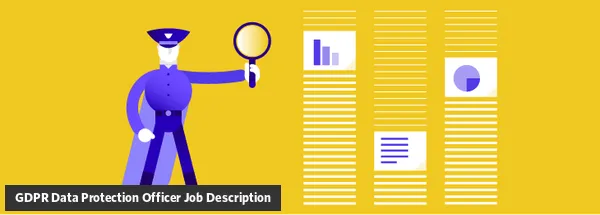GDPR Data Protection Officer Job Description Template
Use this GDPR Data Protection Officer job description template to advertise the open roles for free using Longlist.io. You can use this template as a starting point, modify the requirements according the needs of your organization or the client you are hiring for.

Job Brief
We are looking for a Data Protection Officer (DPO) to ensure our company is compliant with the General Data Protection Regulation (GDPR.)
The DPO will report to our senior management. Data Protection Officer responsibilities include advising on our compliance with GDPR and local data protection laws, monitoring our adherence to GDPR standards and acting as a point of contact with supervisory authorities and data subjects. You will also create policies that enforce compliance with legislation and deliver GDPR trainings to our staff to increase awareness of data protection measures.
To be successful in this role, you should have in-depth knowledge of GDPR and local data protection laws and be familiar with our industry and the nature of its data processing activities. You should also know how to perform audits to our current procedures.
Ultimately, you will facilitate GDPR compliance through transparent data protection policies, systems and procedures.
Responsibilities
- Act as point of contact with EU residents, supervisory authorities and internal teams
- Identify and evaluate the company’s data processing activities
- Provide advice and instructions on how to conduct Data Protection Impact Assessments (DPIAs)
- Monitor data management procedures and compliance within the company
- Participate in meetings with managers to ensure privacy by design at all levels
- Maintain records of processing operations
- Ensure we address all queries from data subjects within legal timeframes (e.g. delete their information from our databases)
- Liaise with other organisations that process data on our behalf
- Write and update detailed guides on data protection policies
- Perform audits and determine whether we need to alter our procedures to comply with regulations
- Offer consultation on how to deal with privacy breaches
- Arrange for training on GDPR compliance for employees
- Follow up with changes in law and issue recommendations to ensure compliance
Requirements
- Experience in data protection and legal compliance
- Work experience in data protection and legal compliance is a plus
- Solid knowledge of GDPR and national data protection laws
- Knowledge of data processing operations in the company’s sector is preferrable
- Familiarity with computer security systems
- Ability to handle confidential information
- Ethical, with the ability to remain impartial and report all noncompliances
- Organizational skills with attention to detail
What does GDPR Data Protection Officer do?
A GDPR Data Protection Officer (DPO) is responsible for ensuring that an organization complies with the General Data Protection Regulation (GDPR) and other data protection laws. On a day to day basis, a DPO typically performs the following tasks:
-
Monitoring compliance: The DPO continuously monitors an organization's data processing activities to ensure that they align with GDPR requirements. This involves reviewing data protection processes, conducting privacy impact assessments, and identifying potential risks.
-
Advising on GDPR compliance: The DPO provides guidance and advice to the organization's staff regarding data protection obligations, including best practices for handling personal data, data breach notifications, and data subject rights.
-
Developing and implementing policies: The DPO helps in the development and implementation of data protection policies, procedures, and standards. They ensure that these policies align with the GDPR requirements and are communicated effectively to employees.
-
Conducting audits and assessments: The DPO carries out regular audits and assessments to identify vulnerabilities and areas for improvement in data protection practices. They analyze data protection practices within the organization and recommend necessary changes to ensure compliance.
-
Handling data breaches: In case of a data breach, the DPO takes the lead in coordinating the organization's response. This includes assessing the severity of the breach, notifying affected individuals or authorities, and implementing measures to mitigate the impact.
-
Liaising with authorities and data subjects: The DPO acts as the point of contact for supervisory authorities and data subjects who have concerns or questions regarding data protection. They facilitate communication and cooperation between the organization and relevant stakeholders.
-
Training and awareness: The DPO organizes and provides training to employees on data protection principles, GDPR requirements, and the organization's policies. They also raise awareness among employees about their data protection responsibilities.
-
Keeping up with regulatory changes: The DPO stays updated with any changes or updates in data protection regulations, guidelines, or best practices. They assess the impact of these changes on the organization and ensure that necessary adjustments are made to maintain compliance.
Overall, the DPO plays a crucial role in overseeing and ensuring the organization's ongoing adherence to GDPR and data protection laws, and acts as an advocate for data subjects' rights and privacy.
